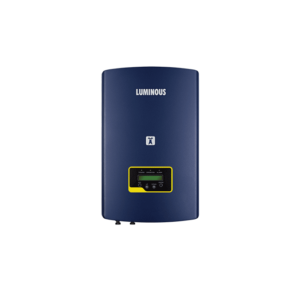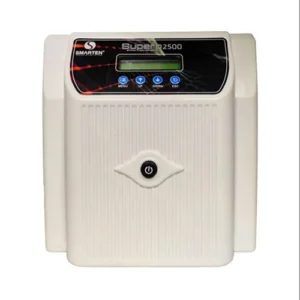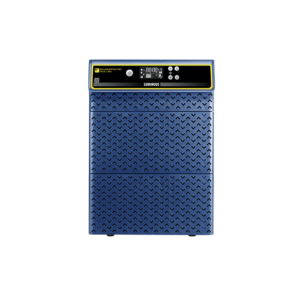PWM Off Grid Solar Inverter

A PWM off-grid solar inverter is an inverter that converts DC power from a battery bank-charged by solar panels-into AC power for household use and which operates independently of the utility grid through the use of Pulse Width Modulation (PWM) technology to regulate the battery charging process.
Basic Function:
DC to AC Conversion:
This equipment takes DC power from the battery bank and converts it to AC power at a specified voltage and frequency, typically 120V/60Hz, for household appliances.
Off-Grid Capability:
It works entirely off the utility grid, using only stored energy in the battery bank.
PWM Charge Controller Integration
Pulse Width Modulation:
The PWM technology controls the charging current by altering the “on” time of the charging pulses. This optimizes the battery life while preventing overcharging.
Simple design:
As opposed to MPPT (Maximum Power Point Tracking), PWM is considered to be a much simpler and less expensive method of charging.
Important Specifications:
Inverter Capacity (VA): The maximum power output of the inverter in volt-amperes.
Battery Voltage: The rated battery bank’s nominal voltage, for example, 12, 24, or 48 volts.
Input Voltage Range: The allowed voltage level of DC voltage from the battery bank.
Output Voltage and Frequency: The AC voltage and frequency supplied by the inverter (e.g., 120V/60Hz).
Charging Current: This is the maximum current that the inverter can provide the battery bank.
Key Components of PWM Off-Grid Solar Inverter:
DC-DC Converter: It adjusts the input DC voltage from the battery bank to a suitable level for the inverter circuitry.
Inverter Stage: Converts DC voltage into the appropriate AC using switching transistors.
Charge Controller (PWM): It is used for charging the battery; it changes the pulse width with respect to battery voltage and current.
Advantages of PWM Off-Grid Solar Inverter:
- Cost-Effective: Generally lower price compared to MPPT inverters.
- Simple to Use: Basic functionality with easy setup and operation.
Disadvantages of PWM Off-Grid Solar Inverter:
Less Efficient:
May not extract maximum power from the solar panels compared to MPPT technology, especially in changing weather conditions.
Potential Battery Damage:
Improperly configured PWM charging can lead to overcharging and shorten battery life if not carefully managed.
Applications:
Small off-grid cabins, Remote locations with limited power needs, and Backup power systems for critical appliances.






